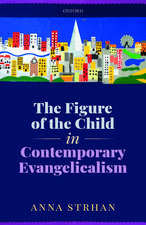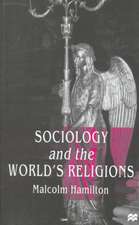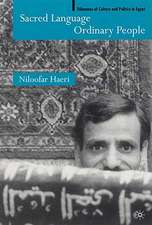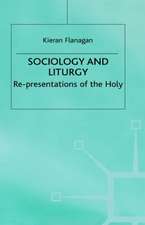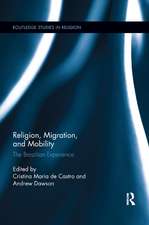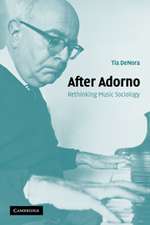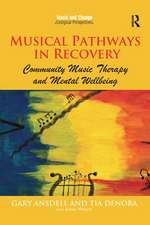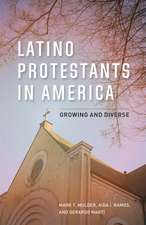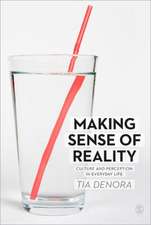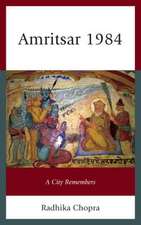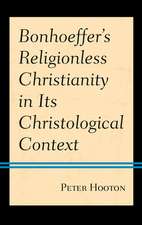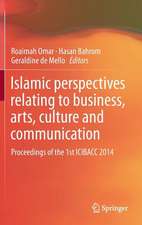Hope: The Dream We Carry
Autor Tia DeNoraen Limba Engleză Paperback – 21 apr 2021
This book provides a concise, interdisciplinary perspective on the emotion and practice of ‘hope'. Based on the idea that hope is a dream that we carry in different ways, the five chapters draw on the author’s original research and align it with literature on the sociology of culture and emotion, to explore the concept in relation to cultural and community practices and mental health.
The climate crisis, violence, hostility, pandemics, homelessness, displacement, conflict, slavery, economic hardship and economic downturn, loneliness, anxiety, mental illness – are intensifying. There is a need for hope. There is also a need to confront hope - what is hope and what can, and cannot, be achieved by hoping. This confrontation includes distinguishing hope from wishful thinking and blind optimism. Using examples from different spheres of social life, including health, religion, music therapy, migration and social displacement, the book sets the idea of hope in context of situations of uncertainty, challenge and pain, and goes on to highlight the practical application of these ideas and outline an agenda for further research on ‘hope'.
Preț: 105.33 lei
Nou
Puncte Express: 158
Preț estimativ în valută:
20.16€ • 20.97$ • 16.64£
20.16€ • 20.97$ • 16.64£
Carte disponibilă
Livrare economică 24 martie-07 aprilie
Preluare comenzi: 021 569.72.76
Specificații
ISBN-13: 9783030698690
ISBN-10: 3030698696
Pagini: 150
Ilustrații: XVII, 150 p. 1 illus.
Dimensiuni: 148 x 210 x 15 mm
Greutate: 0.23 kg
Ediția:1st ed. 2021
Editura: Springer International Publishing
Colecția Palgrave Macmillan
Locul publicării:Cham, Switzerland
ISBN-10: 3030698696
Pagini: 150
Ilustrații: XVII, 150 p. 1 illus.
Dimensiuni: 148 x 210 x 15 mm
Greutate: 0.23 kg
Ediția:1st ed. 2021
Editura: Springer International Publishing
Colecția Palgrave Macmillan
Locul publicării:Cham, Switzerland
Cuprins
1. Hope – A Critical Introduction.- 2. Hope as a Form of Activity.- 3. Hope, Health and Well-being.- 4. Cultures of Hope.- 5. What Can't Hope Do?
Notă biografică
Tia De Nora is Professor of Music Sociology at the University of Exeter, Professor II in Music Therapy at the Grieg Academy, University of Bergen (GAMUT), and a PhD Associate at Nordoff Robbins London, UK. She is an elected Fellow of the British Academy and a member of its sections on Sociology, Demography, and Statistics and Music and Art History.
Textul de pe ultima copertă
This book provides a concise, interdisciplinary perspective on the emotion and practice of ‘hope'. Based on the idea that hope is a dream that we carry in different ways, the five chapters draw on the author’s original research and align it with literature on the sociology of culture and emotion, to explore the concept in relation to cultural and community practices and mental health.
The climate crisis, violence, hostility, pandemics, homelessness, displacement, conflict, slavery, economic hardship and economic downturn, loneliness, anxiety, mental illness – are intensifying. There is a need for hope. There is also a need to confront hope - what is hope and what can, and cannot, be achieved by hoping. This confrontation includes distinguishing hope from wishful thinking and blind optimism. Using examples from different spheres of social life, including health, religion, music therapy, migration and social displacement, the book sets the idea of hope in context of situations of uncertainty, challenge and pain, and goes on to highlight the practical application of these ideas and outline an agenda for further research on ‘hope'.
Caracteristici
Presents ‘hope’ as an interdisciplinary and practitioner-oriented research topic
Sets hope in context of critical literatures on well-being, resilience, and activism, and considers how hope takes shape through cultural engagement
Uses examples taken from the history of social movements, politics, trauma studies, studies of migration and displacement, healthcare, mental well-being, occupations, religion and end of life studies
Speaks to readers about what hope can and cannot do, how hope can be constructive, while also introducing a grounded, culturally informed program of ‘hope studies’ to academics
Sets hope in context of critical literatures on well-being, resilience, and activism, and considers how hope takes shape through cultural engagement
Uses examples taken from the history of social movements, politics, trauma studies, studies of migration and displacement, healthcare, mental well-being, occupations, religion and end of life studies
Speaks to readers about what hope can and cannot do, how hope can be constructive, while also introducing a grounded, culturally informed program of ‘hope studies’ to academics




